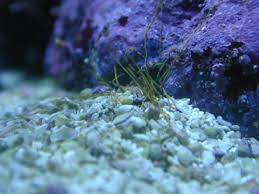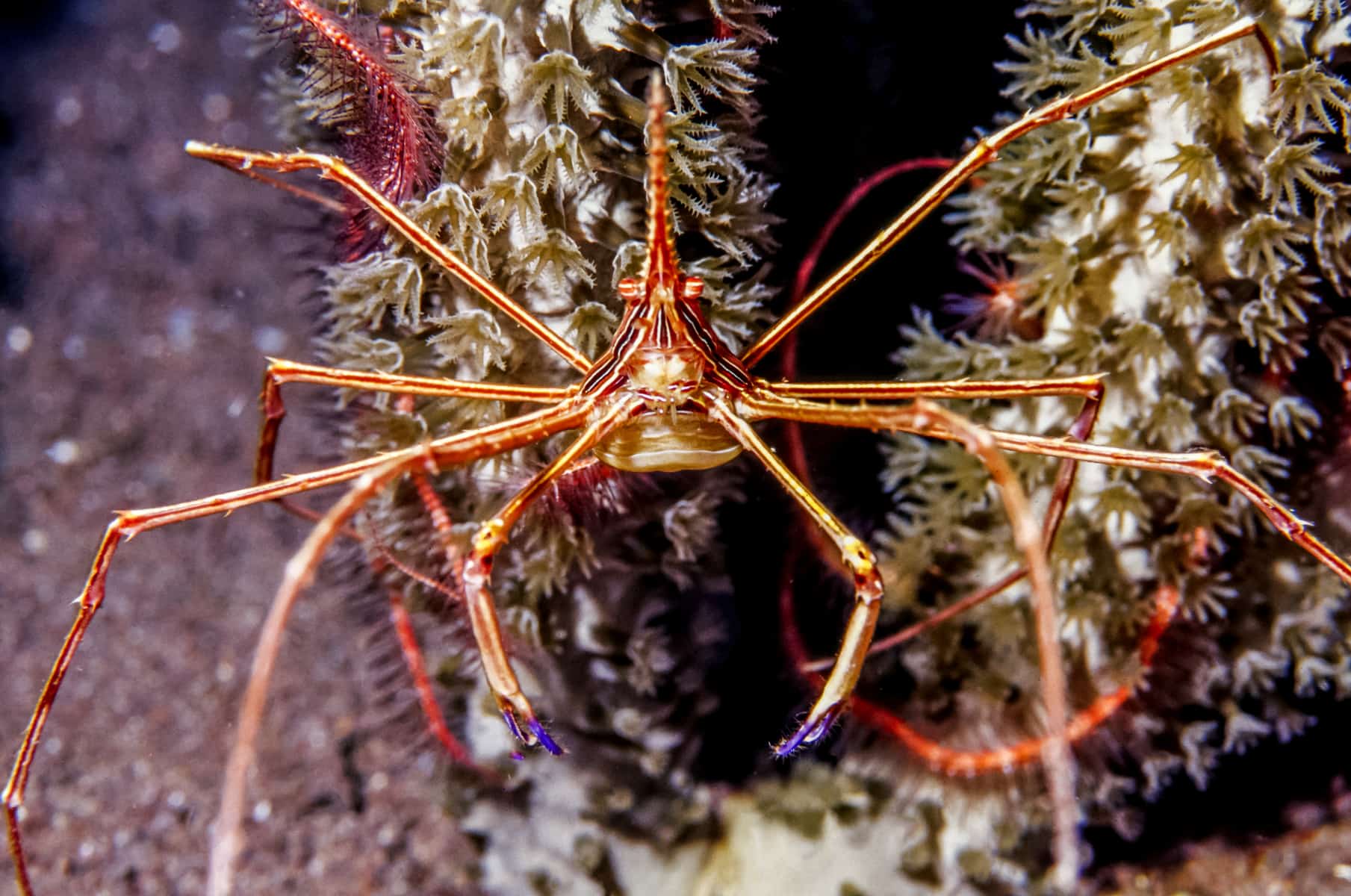Spaghetti worms are a relative of feather dusters and bristle worms and are commonly found in home reef aquariums. They construct hard, cylindrical tubes in crevices in the rockwork that they live inside. They can grow fairly large, with the hidden tubes often growing as long as 6 inches long and an inch wide. They are generally noticed by hobbyists when they extend their long, stringy feeding tentacles to feed on tiny particles in the water column. The appearance of these tentacles is what gives the Spaghetti worm its name. They are often introduced to home tanks as hitchhikers on live rock. Due to their size, they are less likely to be brought into the tank on coral frags.
 While Spaghetti worms do not pose the same dangers to corals as other pests, their feeding tentacles can irritate corals and distract from the visual appeal of the tank and many reefers choose to remove them. Because their tubes are usually hidden, manual removal can sometimes be difficult. One effective method is to reduce the amount of suspended food in the tank, as this will slow their reproduction and ultimately starve them. This can be accomplished by vacuuming the sand during water changes and reducing the amount of food fed to fish and corals. While there are no commercially available treatments that target Spaghetti worms, there are a number of natural predators that can be used to reduce their numbers. Reef safe wrasses, crabs such as the Arrow Crab and sand sifting gobies can all be effective at controlling Spaghetti worms.
While Spaghetti worms do not pose the same dangers to corals as other pests, their feeding tentacles can irritate corals and distract from the visual appeal of the tank and many reefers choose to remove them. Because their tubes are usually hidden, manual removal can sometimes be difficult. One effective method is to reduce the amount of suspended food in the tank, as this will slow their reproduction and ultimately starve them. This can be accomplished by vacuuming the sand during water changes and reducing the amount of food fed to fish and corals. While there are no commercially available treatments that target Spaghetti worms, there are a number of natural predators that can be used to reduce their numbers. Reef safe wrasses, crabs such as the Arrow Crab and sand sifting gobies can all be effective at controlling Spaghetti worms.
 Although it is good practice to always dip new corals before adding them to a display tank, Spaghetti worms are far more likely to be introduced as hitchhikers on live rock. An easy, and environmentally friendly, way to avoid this is to use dry rock instead.
Although it is good practice to always dip new corals before adding them to a display tank, Spaghetti worms are far more likely to be introduced as hitchhikers on live rock. An easy, and environmentally friendly, way to avoid this is to use dry rock instead.
Pests are an unavoidable part of the reefing hobby and, luckily, Spaghetti worms are one of the less harmful hitchhikers reefers may come across. With a little bit of persistence, and the addition of a natural predator or two, they can almost always be effectively controlled.

